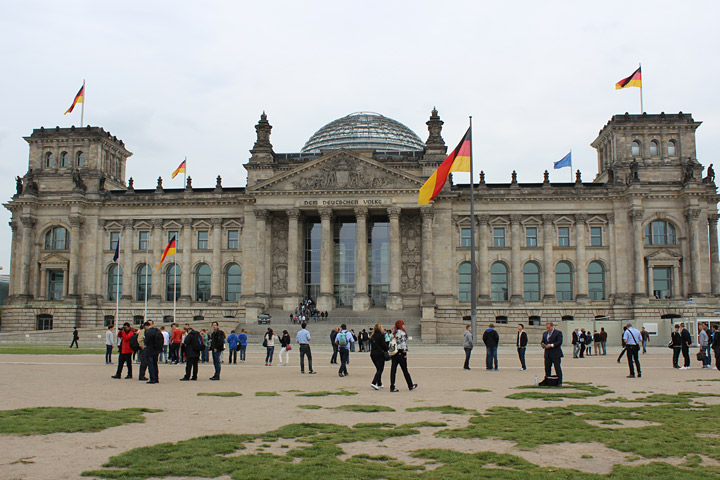Paging Paul Calandra: Germany’s version of Question Period, “Fragestunde,” is so dull and polite the government’s considering reforming it to make things a little livelier.

Given the chance to see this phenomenon, I almost fell asleep at one point, without the cries of “Shame!” and “Hear, hear!” to keep me awake. (It doesn’t help that I don’t speak much German.)
One other journalist wandered into the press gallery by mistake – he was hoping the next debate was going to start soon. He left when it was clear that wasn’t happening.
The questions were on a wide variety of topics, ranging from health care wait times to Google and privacy, environmental concerns about coal and even Belgrade’s pride parade.
Each question was – get this – answered at length by the appropriate government representative.
As far as I can tell, the point of Germany’s Fragestunde differs from that of Question Period. Canada’s system encourages politicians to say pithy, outrageous things for a good soundbite.
READ MORE: Paul Calandra makes tearful apology for Question Period behaviour
In Germany, Question Period is actually a way to get useful answers to legitimate questions.
Opposition members of the Bundestag (Germany’s parliament) submit their questions to the government in advance. During Fragestunde, the equivalent of a parliamentary secretary to whatever minister handles that file stands and delivers a lengthy prepared response. The original questioner gets two follow-ups.
- Life in the forest: How Stanley Park’s longest resident survived a changing landscape
- ‘They knew’: Victims of sexual abuse by Ontario youth leader sue Anglican Church
- Carbon rebate labelling in bank deposits fuelling confusion, minister says
- Buzz kill? Gen Z less interested in coffee than older Canadians, survey shows
If this sounds quite civilized and appealing, particularly after this week’s unreal exchanges in Canada’s House of Commons, think again – it’s not perfect.
Hardly anyone shows up. On the day I was there, there were the few questioners, the few answerers and one or two other members.
Government ministers – or anyone actually accountable for government policy – don’t go.
There’s a debate ongoing about reforming Fragestunde to liven it up and boost participation and accountability.
Outside of the Bundestag, however, the German government is in some ways much more open to questions than Canada’s.
Three times a week, parliamentary assistants appear at the press club’s conference room and answer questions from press gallery (Bundespressekonferenz) members. These aren’t government funding announcements where Canadian reporters try to sneak in topical political questions: These are actual open press conferences. Any accredited journalist can ask anything, and get an answer. (Though to be accredited, you have to be a dues-paying German citizen member of the gallery, or a member of the foreign journalists’ association.)
Chancellor Angela Merkel also makes an annual appearance and answers any questions people have, according to political reporters I spoke to. As far as I know, that’s not Stephen Harper’s style.
The other elements of German political reporting, as far as I can tell from my limited experience, are similar to Canada’s. Opposition politicians are relatively easy to reach. Government response times vary considerably from ministry to ministry. Some departments ask for questions in writing and issue written statements, which may take more than a week. And some departments respond to data requests through freedom of information laws by handing over big stacks of paper.
That part I found a little sad: Two continents, two styles of government, two languages – one impenetrable response to requests for ostensibly public databases.
Leslie Young is in Germany as part of the Arthur F. Burns fellowship program. Read more of her observations and adventures here.




Comments